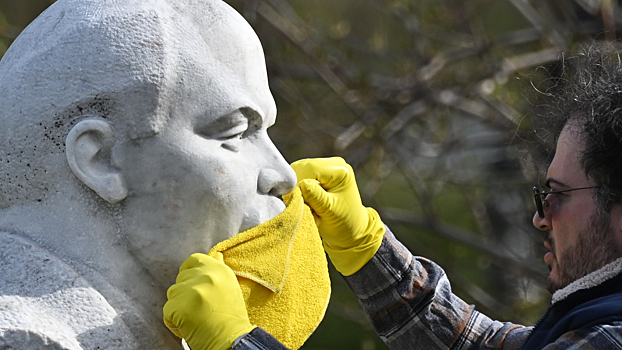What is the cause of left-sided headache during lactation?
What are the causes of postpartum headaches? Most new mothers experience headaches after giving birth, some due to catching a cold during the postpartum period, and others due to underlying health issues. Therefore, postpartum headaches should not be taken lightly, and it is important to identify the cause and treat it accordingly. So what are the causes of postpartum headaches? Let's take a look.
1. Causes of postpartum headaches A. According to Western medicine, postpartum headaches are caused by hormonal changes. When women are pregnant, their hormone levels increase rapidly, but after giving birth, they decrease significantly in a short period of time. This change can cause headaches as the new mother's body cannot adapt to it.
[Method] If this is the cause, you can take painkillers such as ibuprofen to relieve the pain. B. If a new mother undergoes a cesarean section, she will receive spinal anesthesia, and anesthesia drugs will be injected into the body through a spinal needle. If the dura mater is punctured and cerebrospinal fluid leaks out, it can cause headaches.
[Method] The new mother should rest in bed as much as possible and avoid excessive movement. Intravenous infusion of saline solution can increase the metabolism of anesthesia drugs and alleviate the symptoms of headaches. 2. According to Traditional Chinese Medicine, the causes of postpartum headaches are as follows:
A. Blood deficiency: Blood is the material basis of human life activities and the nutritional foundation of various organs and tissues in the body. During childbirth, new mothers may experience excessive bleeding, leading to insufficient qi and blood, which can result in headaches. B. Blood stasis: If the lochia (postpartum discharge) does not flow properly, blood stasis can occur, affecting the blood circulation in the brain and causing headaches.
We hope that the above information on the causes of postpartum headaches can help everyone. We would like to remind everyone to follow the instructions on medication or consult a pharmacist when taking medication. 2. Dietary considerations after childbirth 1. Eat nutritious foods: New mothers should consume foods rich in protein, calcium, and iron, such as beef, eggs, milk, legumes, and soy products. Drinking soup made from pork bones and trotters, which are high in calcium, is also beneficial.
2. Have a balanced diet: New mothers should have a comprehensive nutrient intake and avoid excessive consumption of refined foods. Eggs are rich in protein, so 2-3 eggs per day are sufficient. Excessive consumption can burden the stomach and cause digestive problems. It is recommended to consume coarse grains to meet the body's need for trace elements. Additionally, new mothers should eat plenty of fruits and vegetables to supplement vitamins and promote milk production.
3. Eat light and easily digestible foods: New mothers have limited physical activity and weaker digestion. Some nutrient-rich foods may be difficult to digest and can cause discomfort and constipation. Therefore, it is important to consume easily digestible foods and avoid stimulating foods. It is also advised to avoid smoking and drinking alcohol as nicotine and alcohol can be transmitted to the baby through breast milk, causing discomfort or illness. Stimulating foods can also cause constipation in new mothers, which can lead to uterine prolapse or rectal prolapse if it persists.
4. Avoid selective eating: New mothers should not avoid certain foods without reason. During breastfeeding, it is necessary to have a comprehensive nutrient intake to meet the needs of both the baby and the mother. If a new mother has a habit of being picky or selective with food, it must be corrected during breastfeeding. It is important not to blindly follow hearsay or avoid certain foods without proper reason, as it can lead to inadequate nutrition and affect the health of both the baby and the mother.
Postpartum headache refers to the main symptom of headache after childbirth, also known as postpartum headache or dizziness. So what causes postpartum headache? Let's take a look together! According to Western medicine, postpartum headache is likely caused by changes in hormone secretion levels. Another possibility is that if epidural analgesia or spinal puncture is used during delivery, it can also cause severe headaches. According to traditional Chinese medicine, postpartum headache is caused by excessive postpartum blood loss, insufficient qi and blood, lack of blood nourishment to the brain, or deficiency and coldness in the body, cold pathogens invading the brain, or blood stasis obstructing the brain meridians.
1. Blood deficiency: After childbirth, excessive blood loss leads to insufficient qi and blood, empty brain and marrow, and inadequate blood supply to the brain, resulting in headaches. 2. Blood stasis: After childbirth, the lochia does not flow smoothly, causing blood stasis to rise and obstruct the cerebral blood vessels, resulting in poor blood circulation and headaches.
3. Cold evil: Improper rest after childbirth, exposure to wind and cold, cold evil invades the brain, causing headaches. What are the symptoms of postpartum headaches? The symptoms of postpartum headache are felt by the mother herself, mainly dizziness and discomfort in the head, and sometimes the headache can be very severe. From the perspective of traditional Chinese medicine, the symptoms of postpartum headache vary according to the different causes.
1. Blood deficiency After excessive postpartum blood loss, there is a dull pain in the head, dizziness, pale complexion, palpitations, and weakness. The tongue coating is thin, the tongue is pale, and the pulse is weak. 2. Blood stasis Postpartum headache is severe or piercing, with difficult passage of lochia and distension and pain in the lower abdomen that resists pressure. The tongue coating is thin and the tongue is dark purple, with a stringy and astringent pulse.
3. Cold pathogen Postpartum headache is accompanied by cold and pain in the forehead, which is relieved by heat. The amount of lochia is small and the color is dark purple. The tongue coating is thin and white, with a stringy and astringent pulse. What to do for postpartum headache: 1. Apply ice pack for cold compress.
Put the ice cubes in an ice bag or wrap them in a towel and apply them to the headache area. After the blood vessels in the cooled head contract, the symptoms will naturally be alleviated. 2. Lie down and rest for a while. If conditions permit, it is advisable to rest in a room with dim light and quiet surroundings during a migraine attack. Generally, as long as you sleep for half an hour, the migraine will be relieved to some extent.
3. Head massage A moderate intensity head massage is an effective method to relieve migraine headaches. The temples are important acupoints for migraine massage. You can use your index finger to apply pressure or use your fist to gently rotate and massage from the temples to the hairline. 4. Drink green tea
Substances in green tea have a positive effect on relieving migraine headaches. Therefore, you can drink green tea in moderation to overcome severe migraines. However, postpartum mothers should try to avoid drinking tea during breastfeeding to avoid any potential impact on the baby. 5. Meditation and Yoga
Using yoga and meditation is a new method for treating headaches. Postpartum mothers can purchase a CD of this type and, during a headache attack, close their eyes and meditate along with the music, allowing the harmonious sounds of nature to make them forget about their pain. 6. Head Wrapping with a Towel
It may seem silly, but this is indeed a good method for treating headaches. When experiencing pain, wrap a towel or soft cloth loosely around the temples to inhibit blood vessel dilation and alleviate the pain. The causes and treatment methods of postpartum migraine? Postpartum women may experience migraines due to the following reasons: it may be caused by excessive fatigue during the delivery process; secondly, it may be due to hormonal imbalances in the body; it may also be caused by lack of sleep or exposure to cold. Postpartum migraines can be treated through the following methods: first, they can be alleviated by adjusting daily habits, ensuring normal sleep time, avoiding staying up late, paying attention to keeping warm and avoiding exposure to cold, and avoiding spicy and stimulating foods as much as possible in diet, focusing on a light and nutritious diet; secondly, they can be relieved through methods such as acupuncture and massage.
The above is all the knowledge points explained in this article about the causes of left-sided headaches during the lactation period. I hope it helps you.





Leave a Reply